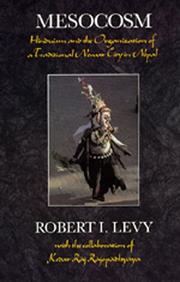| Listing 1 - 10 of 11 | << page >> |
Sort by
|
Book
ISBN: 9782855397634 2855397634 Year: 1990 Publisher: Paris: École française d'Extrême-Orient,
Abstract | Keywords | Export | Availability | Bookmark
 Loading...
Loading...Choose an application
- Reference Manager
- EndNote
- RefWorks (Direct export to RefWorks)
Book
ISBN: 2855399203 9782855399201 Year: 1999 Publisher: Paris: École française d'Extrême-Orient,
Abstract | Keywords | Export | Availability | Bookmark
 Loading...
Loading...Choose an application
- Reference Manager
- EndNote
- RefWorks (Direct export to RefWorks)
Book
Year: 1984 Publisher: Paris: Buchet-Chastel,
Abstract | Keywords | Export | Availability | Bookmark
 Loading...
Loading...Choose an application
- Reference Manager
- EndNote
- RefWorks (Direct export to RefWorks)
Book
Year: 1976 Publisher: Paris: Buchet-Chastel,
Abstract | Keywords | Export | Availability | Bookmark
 Loading...
Loading...Choose an application
- Reference Manager
- EndNote
- RefWorks (Direct export to RefWorks)
Book
Year: 1963 Publisher: Paris: Perrin,
Abstract | Keywords | Export | Availability | Bookmark
 Loading...
Loading...Choose an application
- Reference Manager
- EndNote
- RefWorks (Direct export to RefWorks)
Book
Year: 1937 Publisher: Allahabad : Panini Office,
Abstract | Keywords | Export | Availability | Bookmark
 Loading...
Loading...Choose an application
- Reference Manager
- EndNote
- RefWorks (Direct export to RefWorks)
Hindu sociology. --- Social sciences --- History
Book
ISBN: 9004644687 Year: 1991 Publisher: Leiden ; New York ; København ; Köln : Brill,
Abstract | Keywords | Export | Availability | Bookmark
 Loading...
Loading...Choose an application
- Reference Manager
- EndNote
- RefWorks (Direct export to RefWorks)
It is generally supposed that the Vedic tradition emerged from certain Brahmanic circles of poets, priests and theoreticians who depended economically very much on a kind of pastoral aristocracy. As against this point of view the book maintains the theory that the Vedic tradition was mainly connected with the warrior world, in particular with certain groups of seers that surrounded the warrior chiefs called sûris and strongly opposed the pastoral aristocracy and their priesthood. What emerges from this approach is that the Vedic tradition, in spite of its apparent unity of themes, images and even sentences, is not a tradition based on consensus or on a harmonious development of thought from one end to the other, but rather a tradition that reveals a troubled background, a background of passionate rivalries. The book reconsiders the debate surrounding the antagonistic ideologies of pastoral and agricultural peoples and represents a new contribution to the discussion about similarities and differences between the Iranian and the Indo-Aryan cultures.
Hindu sociology --- History. --- Vedas. --- Criticism, interpretation, etc. --- India --- Social conditions
Multi
ISBN: 9024234255 Year: 1991 Publisher: Kampen Kok Pharos
Abstract | Keywords | Export | Availability | Bookmark
 Loading...
Loading...Choose an application
- Reference Manager
- EndNote
- RefWorks (Direct export to RefWorks)
Hinduism and social problems --- Hindu sociology --- Lingayats --- the mystics --- Viirasaivism --- religious history --- Southern India --- Siva --- Lingayatas --- charismatic leadership --- Basava --- Virasaivas --- Kannada --- spirituality --- labour --- education

ISBN: 0520069110 0585131031 Year: 1990 Publisher: Berkeley : University of California Press,
Abstract | Keywords | Export | Availability | Bookmark
 Loading...
Loading...Choose an application
- Reference Manager
- EndNote
- RefWorks (Direct export to RefWorks)
Mesocosm is a study of Hinduism in its most fully realized form as a symbolic system for organizing the life of a particular kind of city - what the author terms an "archaic" city. The work is a detailed description and analysis of the symbolic world of Bhaktapur, a unicultural city in the Kathmandu Valley, a city which is perhaps the last surviving example of a type of organization once widespread in the ancient world. Robert Levy views Bhaktapur as a structured "mesocosm," mediating between the microcosm of individual self-conception and the macrocosm of the culturally conceived larger universe. The city is a bounded entity, grounded on a minutely divided and interrelated sacrilized space. It uses that space, roles assigned by an elaborate caste system, a semantically differentiated pantheon, and the tempos and forms of the festival year and rites of passage to construct a "civic dance," a web of communication and instruction which deeply affects the experience of Bhaktapur's citizens. Levy investigates the meaning of the community to the people who live there and suggests how the religious forms that have challenged Hinduism in South Asia - Christianity and, above all, Islam - are profoundly antithetical to Hinduism as the organizing principle for cities such as Bhaktapur. Mesocosm is a groundbreaking contribution to anthropology, social and religious history, and Indian and Nepalese studies--Publisher's description.
Hindu sociology. --- Sociology, Urban --- Hinduism --- Newar (Nepalese people) --- Hindu sociology --- Religion --- Philosophy & Religion --- Bhaktapur (Nepal) --- Religious life and customs. --- Newar (Nepalese people). --- Urban sociology --- Sociology, Hindu --- Newari (Nepalese people) --- Newars --- Bhādgāon, Nepal --- Bhādgāon (Nepal) --- Bhatgaon (Nepal) --- Bhatgoan (Nepal) --- Bhakatpur (Nepal) --- Badagaon (Nepal) --- Khvapa (Nepal) --- Bhakttapura (Nepal) --- Religions --- Brahmanism --- Cities and towns --- Sociology --- Ethnology --- Tibeto-Burman peoples

ISBN: 3161464834 3161464850 Year: 1996 Volume: Abteilung I, 20. 20 Publisher: Tübingen Mohr Siebeck
Abstract | Keywords | Export | Availability | Bookmark
 Loading...
Loading...Choose an application
- Reference Manager
- EndNote
- RefWorks (Direct export to RefWorks)
Hindouisme --- Morale hindoue --- Bouddhisme --- Morale bouddhique --- Aspect économique --- Sociologie --- Buddhist ethics --- Buddhist sociology --- Economics --- Hindu ethics --- Hindu sociology --- Sociology, Hindu --- Sociology --- Religious ethics --- Economic theory --- Political economy --- Social sciences --- Economic man --- Sociology, Buddhist --- Moral and ethical aspects --- Morale hindoue. --- Morale bouddhique. --- Aspect économique. --- Sociologie. --- Aspect économique.
| Listing 1 - 10 of 11 | << page >> |
Sort by
|

 Search
Search Feedback
Feedback About UniCat
About UniCat  Help
Help News
News